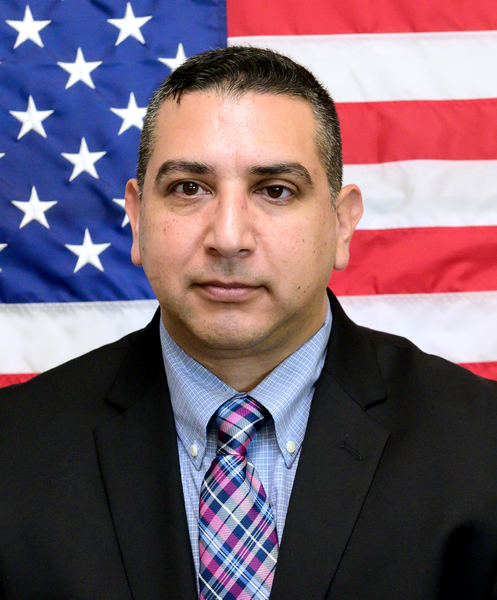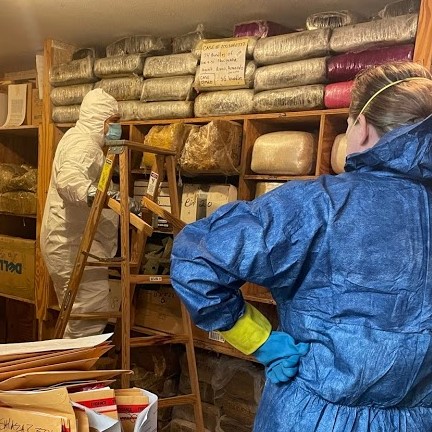Change Management Requires Courageous Leaders Who Begin With Their Resignation Letter
In the 2000 film Traffic, two lines stand out as timeless lessons in leadership. The story follows the transition of the Office of National Drug Control Policy as a new administration takes office. In one scene, outgoing drug czar General Ralph Landry (James Brolin) shares a parable with his successor, Robert Wakefield (Michael Douglas):
“When Khrushchev was forced out, he wrote two letters for his successor. The first said, ‘When you get into a situation you can’t escape, open this letter—it will save you.’ The second said, ‘When you face another impossible situation, open this letter.’ Soon enough, the successor opened the first letter: Blame everything on me. It worked. Later, in another crisis, he opened the second letter: Sit down and write two letters.”
This anecdote has been repeated in countless leadership seminars, often as a cautionary tale about blame-shifting. Yet another line from the film carries even greater weight. When Wakefield praises Landry’s service, the General replies: “I’m not sure I made the slightest difference. I tried. I really did.” His words reflect the reality of leaders who preserve the status quo rather than embrace transformation.
The Metaphor of the Resignation Letter
The phrase “great leaders write their resignation letter on day one” is not literal—it is a metaphor for humility, service, and succession. Effective change leaders recognize that their tenure is temporary. Their mission is not self-preservation but building resilient systems and developing people so the organization thrives long after they are gone.
Leadership and courage are deeply intertwined. Courage enables leaders to take bold, principled decisions, navigate uncertainty, and inspire their teams, while also fostering a culture of trust, innovation, and resilience. It is the opportunity to face challenges, make difficult choices, and take calculated risks for the long-term benefit of the organization.
When leaders inherit organizations plagued by low trust, poor performance, inadequate resources, or missions beyond current capacity, their first responsibility is a comprehensive needs assessment. From there, they must set attainable goals, address gaps, and take ownership of both past shortcomings and future challenges. Blaming predecessors is easy; true leadership lies in accountability, moral courage, and strategic planning.
Courage in the Face of Uncertainty
Change leaders must accept that their role is precarious. They may be “fired” for failures rooted in organizational history or circumstances beyond their control. Yet courageous leaders do not fear failure—they embrace it as part of growth. Leaders can choose to view failure as a learning opportunity, which builds resilience for both themselves and their teams.
Courage is vital for making decisions that may be unpopular but are necessary for the organization’s long-term success. This can include terminating a failing project, making personnel changes, or making tough calls that disappoint some team members.
By modeling courage through actions like admitting mistakes, showing vulnerability, and having tough conversations, leaders build trust and psychological safety. This empowers team members to take risks and share their own ideas without fear of judgment.
Preparedness, resource allocation, calculated risk-taking, and precision are the hallmarks of resilient leadership. Courageous leaders are not afraid to challenge the status quo, driving innovation and adaptation in dynamic environments. This willingness to take risks provides a sense of security for the team and encourages them to aim for higher goals.
Beyond Titles: The Difference Between Good and Great
Leaders who pursue rank and salary without purpose inevitably leave behind organizational collateral damage. Competent leaders may restore basic standards and maintain “business as usual.” But great leaders go further: they challenge themselves and their teams to innovate, explore uncharted opportunities, and set new benchmarks for excellence.
Courageous leaders lead by example, inspiring their teams to embrace challenging visions and strive for excellence. They help their teams navigate uncertainty with confidence and resilience. Intellectually, they have the courage to question assumptions and consider diverse perspectives, which spurs innovation.
Stagnant leadership drives away top performers; visionary leadership inspires them to stay and grow. Speaking truth to power and advocating for change—even when difficult or controversial—distinguishes leaders who merely manage from those who transform.
The Conductor’s Role
Great leaders ensure that every member of the organization understands the importance of their role. They foster energy, growth, and succession planning that rewards innovation, leverages technology, and strengthens trust.
Communicating openly about challenges ahead helps build trust and allows the team to prepare for what is to come. Like conductors of an orchestra, courageous leaders place individuals in positions where their talents harmonize—each person capable not only of playing their own part but of supporting their partners when needed.
The Legacy of Courageous Leadership
When a great change leader departs, they leave behind more than improved systems—they leave behind empowered people. They take pride in knowing they made a difference by investing in growth, embracing risk, and building trust.
Their legacy is not fear of failure but confidence in challenge, precision, and dedication to mission success. Moral courage—standing up for what is right and upholding ethical standards even under pressure—builds credibility and trust with stakeholders. Ultimately, courageous leaders leave the organization stronger than they found it, but more importantly, they leave a team prepared to carry the vision forward.











